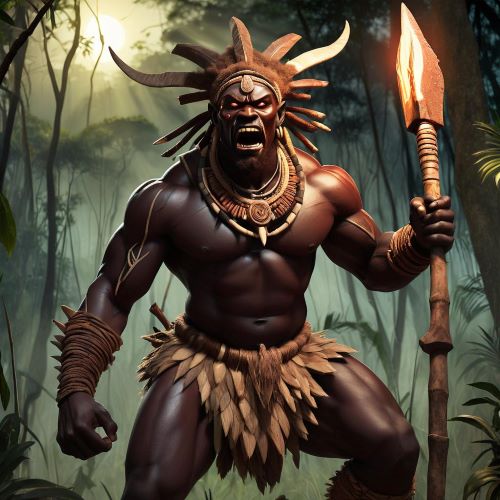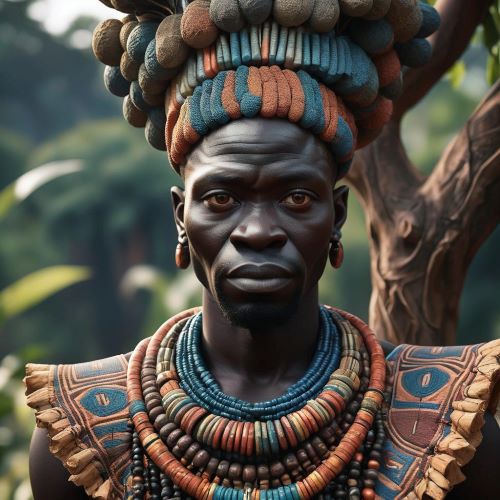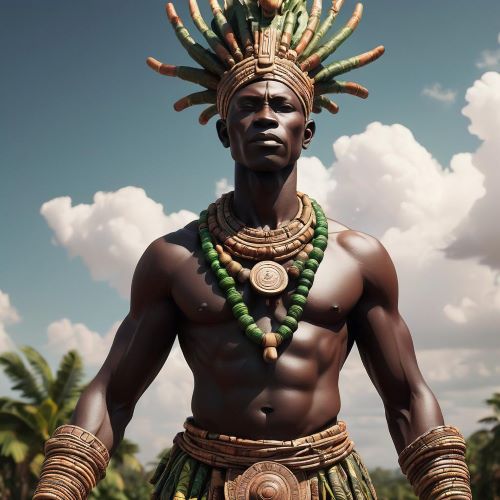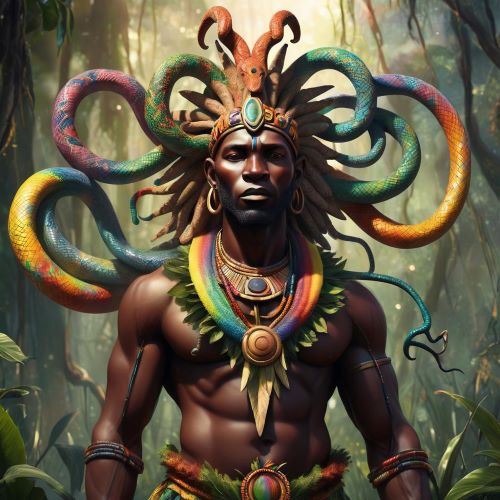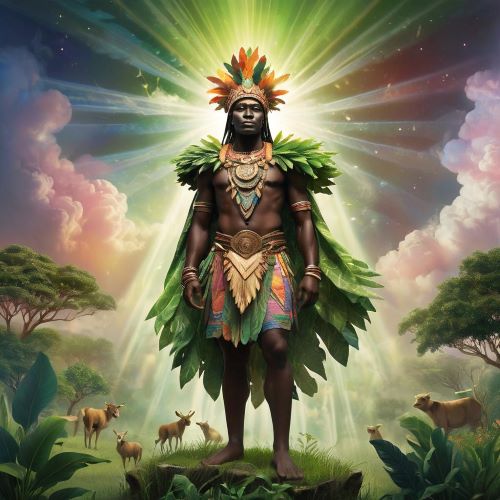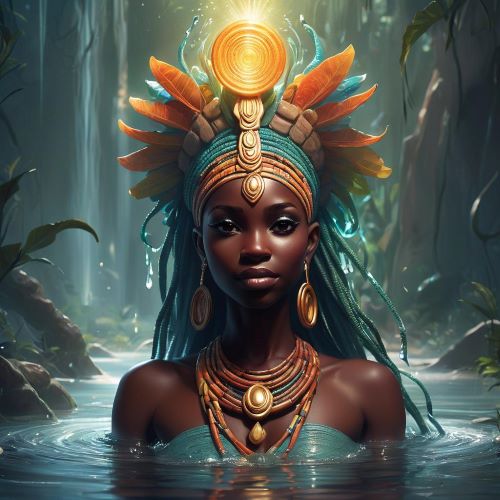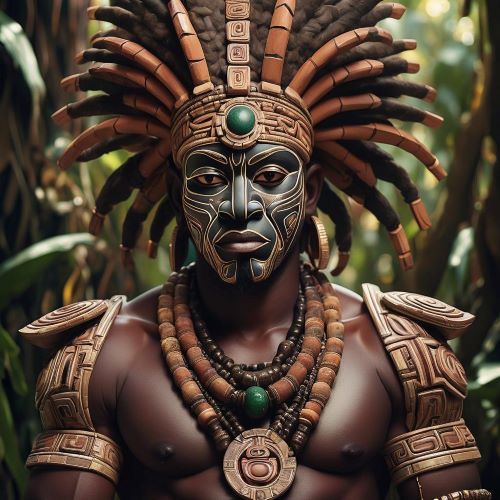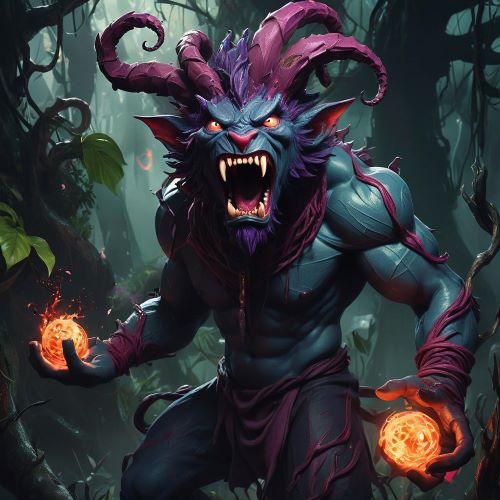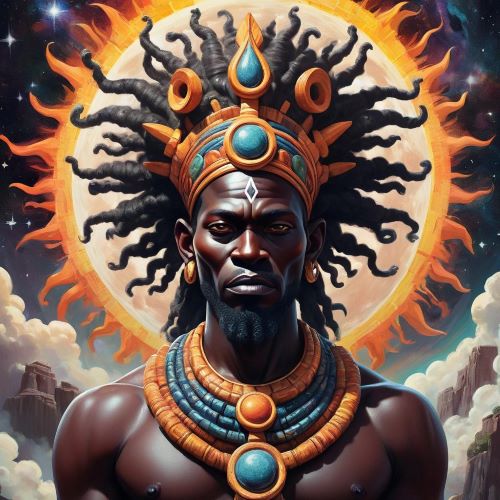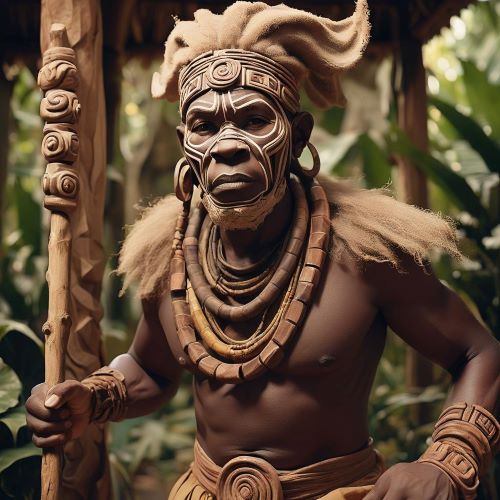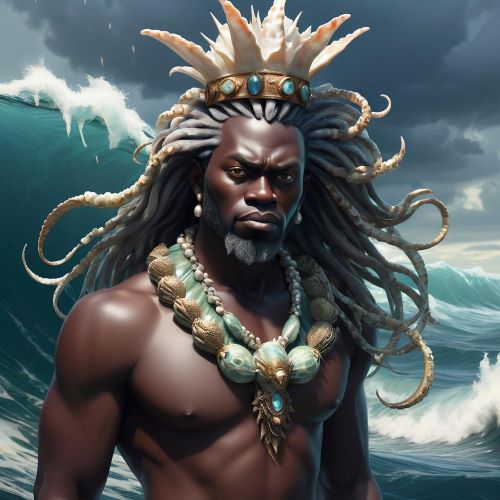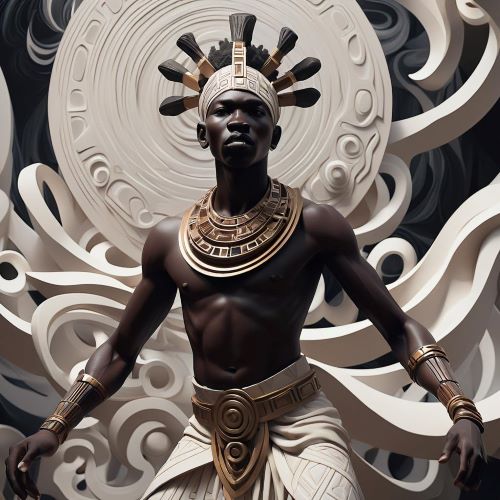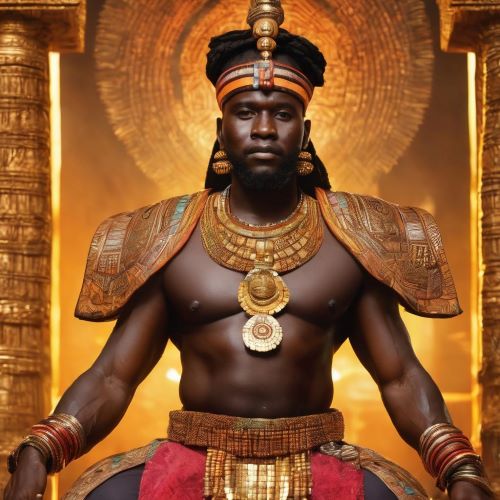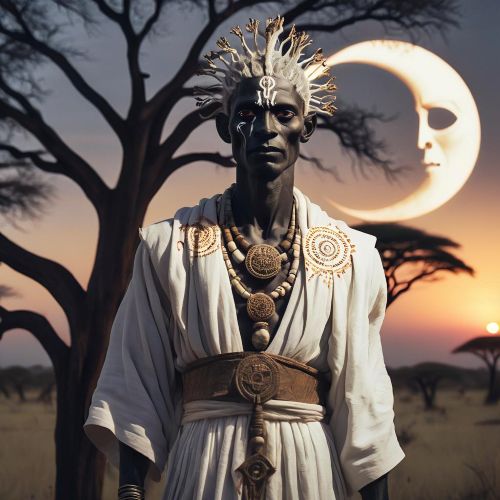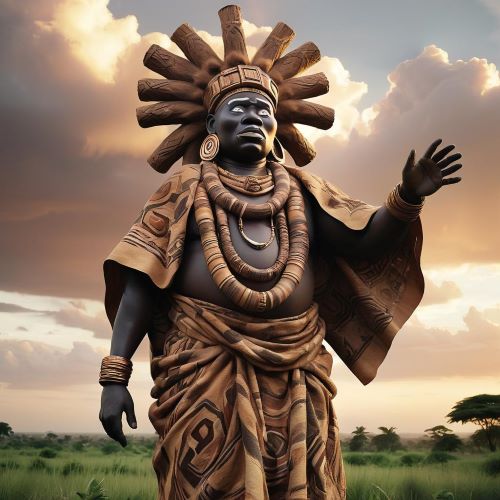Central African Gods
Central African mythology is rich and diverse, reflecting the region’s cultural and geographical variety. The gods in these traditions play central roles in shaping the beliefs, rituals, and values of the people. Central African gods are often connected to natural forces, the ancestral realm, and the cycle of life and death. Their stories offer insight into how ancient communities understood the world around them, from the ebb and flow of rivers to the mysteries of the skies and the earth. Through myth, Central African societies explained everything from the creation of the world to the relationship between humans and the divine.
Many Central African gods are closely linked to nature, embodying the elements, animals, and landscapes that are key to the people’s livelihood. These gods often act as intermediaries between humans and nature, ensuring balance and harmony in the world. For example, gods associated with rain and agriculture are revered for their ability to bring life and sustain crops. The relationship between gods and humans is deeply reciprocal, with offerings and rituals being essential for gaining divine favor. In this sense, Central African gods are not distant figures but rather active participants in the daily lives of the people, guiding them through moral and ethical dilemmas.
Ancestral worship is a significant aspect of Central African spiritual practices, and many gods are seen as powerful ancestors who have ascended to a divine status. These ancestral gods protect their descendants and maintain social order. They are also revered for their wisdom and strength, acting as guardians of traditions and cultural heritage. Their presence in mythology serves as a reminder of the deep connection between the past and present, with the belief that the ancestors continue to influence the lives of the living. This interconnectedness between the divine, the natural world, and human society is a hallmark of Central African mythology.
Central African gods are not just confined to ancient tales; their influence persists in modern-day religious practices and cultural expressions. Festivals, rituals, and artistic representations of these gods remain central to community life. Even as Christianity and Islam have spread throughout the region, many Central Africans continue to honor their traditional deities, blending these ancient beliefs with newer religious practices. These gods are seen not only as mythological figures but as enduring symbols of identity and resilience.
The myths and legends surrounding Central African gods provide valuable insight into the social structures, values, and cosmologies of the region. They reveal a deep respect for nature, ancestors, and the mysteries of existence. Whether through tales of creation, stories of heroic deities, or the veneration of ancestral spirits, these myths continue to shape the cultural fabric of Central African societies. The gods of Central Africa are timeless, their stories passed down through generations, ensuring their place in the collective memory of the people.
Central African mythology is rich and diverse, reflecting the region’s cultural and geographical variety. The gods in these traditions play central roles in shaping the beliefs, rituals, and values of the people. Central African gods are often connected to natural forces, the ancestral realm, and the cycle of life and death. Their stories offer insight into how ancient communities understood the world around them, from the ebb and flow of rivers to the mysteries of the skies and the earth. Through myth, Central African societies explained everything from the creation of the world to the relationship between humans and the divine.
Many Central African gods are closely linked to nature, embodying the elements, animals, and landscapes that are key to the people’s livelihood. These gods often act as intermediaries between humans and nature, ensuring balance and harmony in the world. For example, gods associated with rain and agriculture are revered for their ability to bring life and sustain crops. The relationship between gods and humans is deeply reciprocal, with offerings and rituals being essential for gaining divine favor. In this sense, Central African gods are not distant figures but rather active participants in the daily lives of the people, guiding them through moral and ethical dilemmas.
Ancestral worship is a significant aspect of Central African spiritual practices, and many gods are seen as powerful ancestors who have ascended to a divine status. These ancestral gods protect their descendants and maintain social order. They are also revered for their wisdom and strength, acting as guardians of traditions and cultural heritage. Their presence in mythology serves as a reminder of the deep connection between the past and present, with the belief that the ancestors continue to influence the lives of the living. This interconnectedness between the divine, the natural world, and human society is a hallmark of Central African mythology.
Central African gods are not just confined to ancient tales; their influence persists in modern-day religious practices and cultural expressions. Festivals, rituals, and artistic representations of these gods remain central to community life. Even as Christianity and Islam have spread throughout the region, many Central Africans continue to honor their traditional deities, blending these ancient beliefs with newer religious practices. These gods are seen not only as mythological figures but as enduring symbols of identity and resilience.
The myths and legends surrounding Central African gods provide valuable insight into the social structures, values, and cosmologies of the region. They reveal a deep respect for nature, ancestors, and the mysteries of existence. Whether through tales of creation, stories of heroic deities, or the veneration of ancestral spirits, these myths continue to shape the cultural fabric of Central African societies. The gods of Central Africa are timeless, their stories passed down through generations, ensuring their place in the collective memory of the people.

